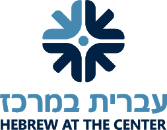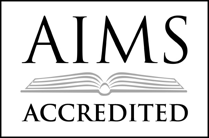The Importance of Voice and D.C. Statehood: A Second Grade Election Project Update
October 27, 2016 by
One of the highlights of Second Grade at JPDS-NC is their study of Washington, D.C., so the issue of D.C. statehood was chosen for the Second Graders to grapple with in our Election Project. The journey they took to arrive at a place where that question held relevance was impressive indeed.
The Second Grade teachers quickly realized that without an understanding, first, of what it means to have a vote or a voice, and second, of how different people have different ideas about what issues matter most for themselves and the world around them, their students would never make a meaningful connection to the issue of D.C. statehood. So they began by exploring a number of questions with the students: Why do we vote? When do we vote? Is it fair that we have to be 18 to vote? What issues matter? In-depth conversations and debate followed. Another key to the process was understanding what an issue was. As one Second Grader defined it, “It’s a problem we care about.” Different classes used different graphic organizers to think about issues, and as they did so, they all moved to thinking about them as a widening circle, with themselves at the center, surrounded by the school, the community, the country, and the world.
Significantly, the students also began thinking about what it means to have a voice. At this point, they turned to the issue of D.C. statehood. First they needed to explore the concept of representative government and what it looks like in our Legislative Branch. In addition, they studied the past history of voting rights in the United States and historical arguments for and against D.C. statehood. When they examined a copy of this year’s Voter’s Guide for citizens of Washington, D.C., they learned that felons cannot vote, which led to even more questions about who gets to vote when, where, and why. By the time they got to debating among themselves whether D.C. should be given statehood and full representation in Congress, they were far from unanimous in their opinions.
In addition to conversations with students at JPDS-NC, our Second Graders visited the Horace Mann Public School in Washington, D.C., to meet with Second Graders there. Before going, our students practiced how to be ambassadors of the school, practicing how to shake hands, speak in an appropriate tone and volume, look others directly in the eye, and so on. They also prepared themselves to ask questions and take notes. During their visit, each JPDS-NC student facilitated a discussion with a Second Grade partner from Horace Mann about what issues mattered most to them. Next, each child chose the issue that they considered to be the most important and discussed their reasons. Then, every child shared their partner’s choice with the group, experiencing hearing another’s voice through one’s own and gaining a different perspective on the world. And then they joined their new acquaintances for lunch.
As a result of their work on this project, the Second Graders decided they wanted to tackle some of the issues they had identified as important at JPDS-NC. Each homeroom class chose one to study and think about, and they will be presenting their perspective and insights to the administration. One class is addressing recess on the field, one is addressing dismissal time, and one is addressing how academic time is scheduled. The Second Graders have truly absorbed what it means to have a voice and to use it to try to make a difference.
This experience also led our Grade 2 teaching team to consider the ways it spoke to their curriculum in general. What does it mean to have a voice in the classroom? What does it mean to have an individual voice or a group voice? How do we use our voice in our writing? What does it mean to be an active listener of the voices of others? Our Music and Art teachers joined this conversation and are using this lens in their teaching as well. This is a question that will continue to have relevance throughout the year.






